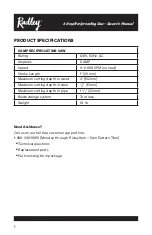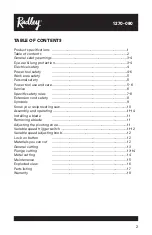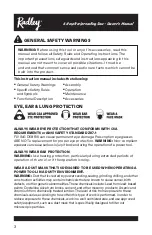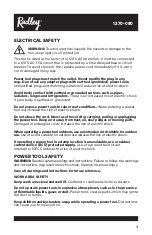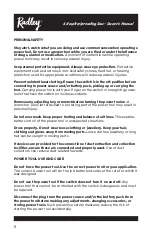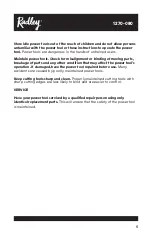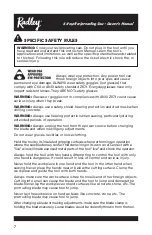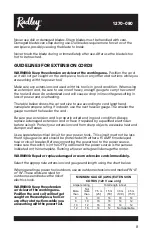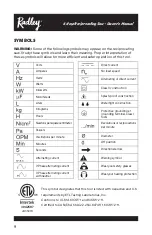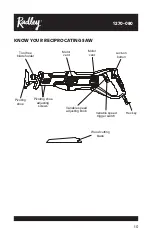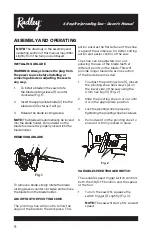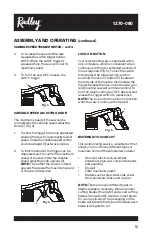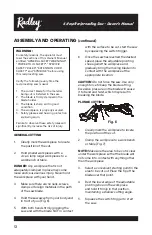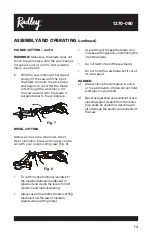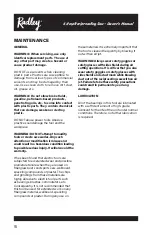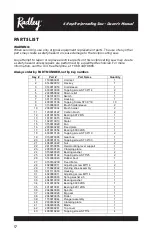
7
6 Amp Reciprocating Saw - Owner's Manual
SPECIFIC SAFETY RULES
WARNING:
Know your reciprocating saw. Do not plug in the tool until you
have read and understand this Instruction Manual. Learn the tool’s
applications and limitations, as well as the specific potential hazards related
to this tool. Following this rule will reduce the risk of electric shock, fire, or
serious injury.
Always wear eye protection. Any power tool can
throw foreign objects into your eyes and cause
permanent eye damage. ALWAYS wear safety goggles (not glasses) that
comply with CSA or ANSI safety standard Z87.1. Everyday glasses have only
impact resistant lenses. They ARE NOT safety glasses
WARNING:
Glasses or goggles not in compliance with ANSI Z87.1 could cause
serious injury when they break.
WARNING:
Always use a safety shield, hearing protection and dust mask when
drilling concrete.
WARNING:
Always use hearing protection when sawing, particularly during
extended periods of operation.
WARNING:
Always unplug the tool from the power source before changing
the blade and when making any adjustments.
Do not wear gloves, neckties or loose clothing.
Hold the tool by its insulated gripping surfaces when performing an operation
where the saw blade may contact hidden wiring or its own cord. Contact with a
"live" wire will make exposed metal parts of the tool "live" and shock the operator.
Always hold the tool with two hands. Attempting to control the tool with only
one hand is dangerous. It could result in loss of control and serious injury.
Never hold the workpiece in one hand and the tool in the other hand when
sawing. Never place the hands near or below the cutting surface. Clamp the
workpiece and guide the tool with both hands.
Always make sure the work surface is free from nails and other foreign objects.
Cutting into a nail can cause the blade and the tool to jump and damage the
blade. Never lay the workpiece on hard surfaces like concrete, stone, etc. The
protruding blade may cause tool to jump.
Never lay the workpiece on hard surfaces like concrete, stone, etc. The
protruding blade may cause tool to jump.
After changing a blade or making adjustments, make sure the blade clamp is
holding the blade securely. Loose blades could be violently thrown from the tool.


